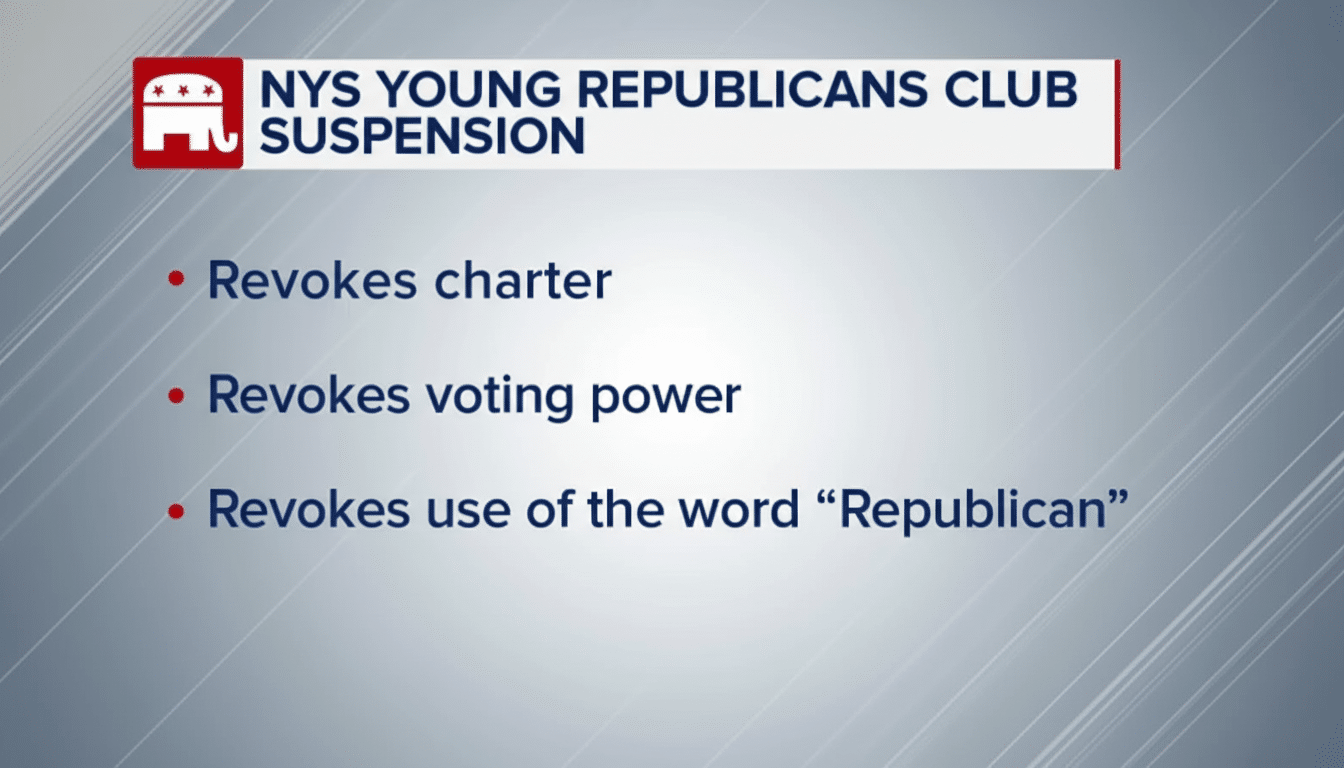Private group chats among Young Republican leaders in multiple states were leaked; they include hundreds of racist, homophobic, and antisemitic slurs, along with graphic expressions of admiration for extreme figures and violence. The cache — described by Politico as thousands of pages of Telegram messages — reveals a permissive culture for hate speech within a network that has branded itself the next wave of conservative leadership.
Content includes the casual use of dehumanizing language to expressions of joy at sexual violence, in a variety of abhorrent categories (e.g., participants have shared white supremacist dog whistles, Holocaust references, and anti-Black tropes), according to the reporting. Some messages ranged into open praise for Nazism, a reminder of how common that kind of rhetoric has become in some corners of encrypted political organizing.

What the Leaked Messages Reveal Inside the Chats
Politico’s review of more than 2,900 pages of chats, which included videos and memes that were not publicly released, provides a comprehensive look at the questionably racist hodgepodge of material on offer in the chat and the impunity with which group members shared it. Some posts mirror other talking points of high-profile conservative influencers, in what appears to be something of a feedback loop where viral culture-war content migrates to private spaces and becomes open hate.
Extremism trackers note that this pattern aligns with how fringe ideas achieve internal validation. The Anti-Defamation League and the Institute for Strategic Dialogue have tracked analogues in how coded phrases are litmus tests before communities rationalize explicit incitement. In this instance, the leaked messages went beyond dog whistles to explicit endorsements of historically violent ideologies.
Who Is Implicated and What They Say in Response
The purported members are current and former Young Republican officers from Kansas and New York — William Hendrix, Bobby Hendrix, and Peter Giunta — as well as former federal employee Michael Bartels, according to Politico. In his statement, Giunta called the leak an attack on his character but did not specifically contest the content of the messages he reportedly sent. Other figures in the larger Young Republican universe have denounced the rhetoric and tried to put some distance between themselves and the chat.
State and national party figures have come under pressure to do so because of the pipeline role that youth organizations play in scouting staff, volunteers, and future candidates. Though some of the leaders have dissociated themselves from the language and disavowed formal connections to the splinter chat, the episode has raised questions about vetting and oversight in youth political networks that frequently function semi-independently from official party structures.
How Encrypted Chats Are Fueling Extremism
Encryption, the ability for large groups to exchange messages, and minimal content moderation are features that have made platforms like Telegram, Signal, and others staples for activists on all sides, from civil rights advocates to far-right militias. The same attributes can foster insular spaces in which social norms float, responsibility remains minimal, and more extreme content is rewarded with clout.

Researchers at the Stanford Internet Observatory and the Center for Countering Digital Hate have found that private channels are used to incubate narratives that then flow into public feeds. The process is predictable: provocations are trial-ballooned in private rooms, hardened with in-group affirmation, and then laundered for popular consumption. Repeated by elected officials or partisan media, those messages can boomerang back into private chats as validation.
Why This Matters for GOP Youth Politics and Culture
Young wings are all talent pipelines and idea labs. If rafts of hateful rhetoric are normalized within those pipelines, it can seep out into campaign culture, messaging, and governance. Beyond the moral harm, there are real political costs: diverse younger voters are particularly alert to matters of inclusion, and parties that appear lenient toward bigotry court estrangement of a generation.
This is not a one-off dynamic. Civil society groups have already unearthed extremist chatter in campus and activist circles on both sides of the ideological spectrum. Conservatives have faced the same kind of revelation that has dogged far-right corners of the internet since Charlottesville, in the post-Charlottesville leaks from Discord servers, where internal logs disclosed by investigative collectives like Unicorn Riot showed how a private room for planning and discussion would mainstream violent rhetoric.
Accountability and Next Steps for Party and Groups
Possible consequences range from party discipline, employer investigations, and legal risk in cases that include threats. Party committees have the power to conduct internal investigations, revoke affiliations, or develop clearer codes of conduct for official and unofficial youth groups. Donors and allied groups may begin to reevaluate relationships, especially on college campuses and state party committees.
More globally, experts suggest programs to train people so they are better able to recognize harm before it solidifies as identity. That includes increased onboarding standards, training about disinformation and hate speech, and straight escalation paths when members observe violations. Transparency, the ADL has long argued, and swift condemnation from leadership are some of the most effective antidotes.
The leaked chats are a stress test for a movement that has put a heavy emphasis on youth organizing. How party leaders respond to the revelations — as a one-off embarrassment or a structural problem — will broadcast to voters, donors, and aspiring Republican operatives what values define the next generation of party politics.

